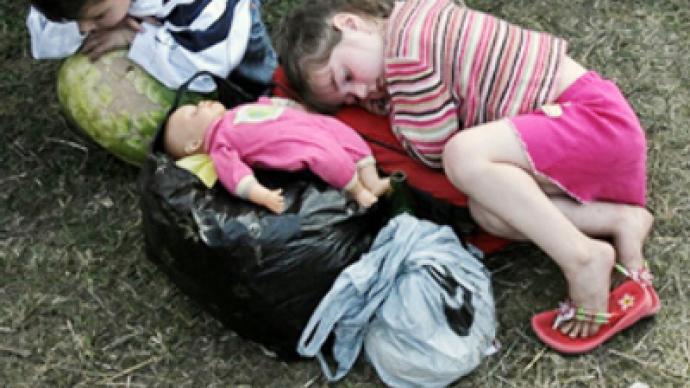Revealed: the bias of Western NGOs in South Ossetia

A senior Russian human rights official has spoken out against attempts by Western NGOs to downplay the number of casualties in the 5-day battle for Tskhinval. Public Chamber member and Director of the Moscow Human Rights
In this interview conducted by Ossetia Info, a media body set up to publish information on the region, Alexander Brod explains how most Western NGOs report events from a Georgian perspective.
What is your reaction to claims by international human rights groups that just 40 bodies were found in the South Ossetian capital, Tskhinval?
A.B.: The international observers have been very passive in their investigation of the South Ossetian crisis. Most of them took a position of non-interference while the others showed a one-sided approach, convenient only to the Georgian side. They ignored facts like mass killings, war crimes, the devastation of Tskhinval, the attempt to rub the whole republic from the face of Earth. I don’t know how they calculated that 40 people had been killed. Neither us, nor the South Ossetian authorities have seen any representatives of Human Rights Watch there. When we were in Tskhuinval we saw a demolished city with bodies lying in the rubble. There were hundreds of victims.
Of course, the international observers must pay attention to the situation in Georgia. There were victims amongst civilians there. But there were no mass executions like in South Ossetia. That was just the reaction of Russian peacekeeping forces on the war crimes of the Georgian army. The Russian soldiers aimed at Georgian firing points and military bases. This is war and some civilian buildings were destroyed, people were injured. We know of several deaths among Georgian civilians. But it doesn’t mean that the human rights organizations don’t have to assist in protecting the rights of Georgian citizens affected by the war or to help in repairing their homes.
What problems do such statements cause to Russia’s Public Chamber?
A.B.: The main problem is the gathering of eyewitness evidence that would make the people responsible for the massacre appear before the court and answer for what they have done. The main task of the human rights organizations in such cases is to be objective and protect all victims, not depending on the nationality and citizenship. I think that Russia’s Public Chamber acted with maximum tact and objectivity, which can’t be said about the representatives of foreign agencies.
What is your reaction to Russia’s recognition of South Ossetia and Abkhazia as independent states?
A.B.: This was inevitable. The citizens of both republics have made their choice long ago. There were referendums, which showed that South Ossetia and Abkhazia want to be independent and act together with Russia.
Now after all the war crimes the republics do not have the resources to rebuild their cities and villages on their own because their economies were destroyed. It’s obvious that they don’t have a future with Georgia. When they came up with the proposition to recognize the independence of South Ossetia and Abkhazia, Russian MPs and senators studied the international law and all the Russian legal acts from the period of the collapse of Soviet Union, which say that Georgia had to give the right for self-determination to the republics. But Georgia never did so. I think that Russia has made a right move because South Ossetia and Abkhazia suffered from their status as ‘breakaway republics’, experiencing economical difficulties and isolation from the world.
I think that some other states will now follow Russia’s example, but everybody understand that the process of recognition will be long and difficult. Russia is now criticized a lot. But now the main task for us is to collect as much evidence of war crimes as possible and explain to the world what has happened in South Ossetia. I am sure that in the end a lot of states will realize that Russia’s position in this conflict was right and that South Ossetia and Georgia should be parted from Georgia.












